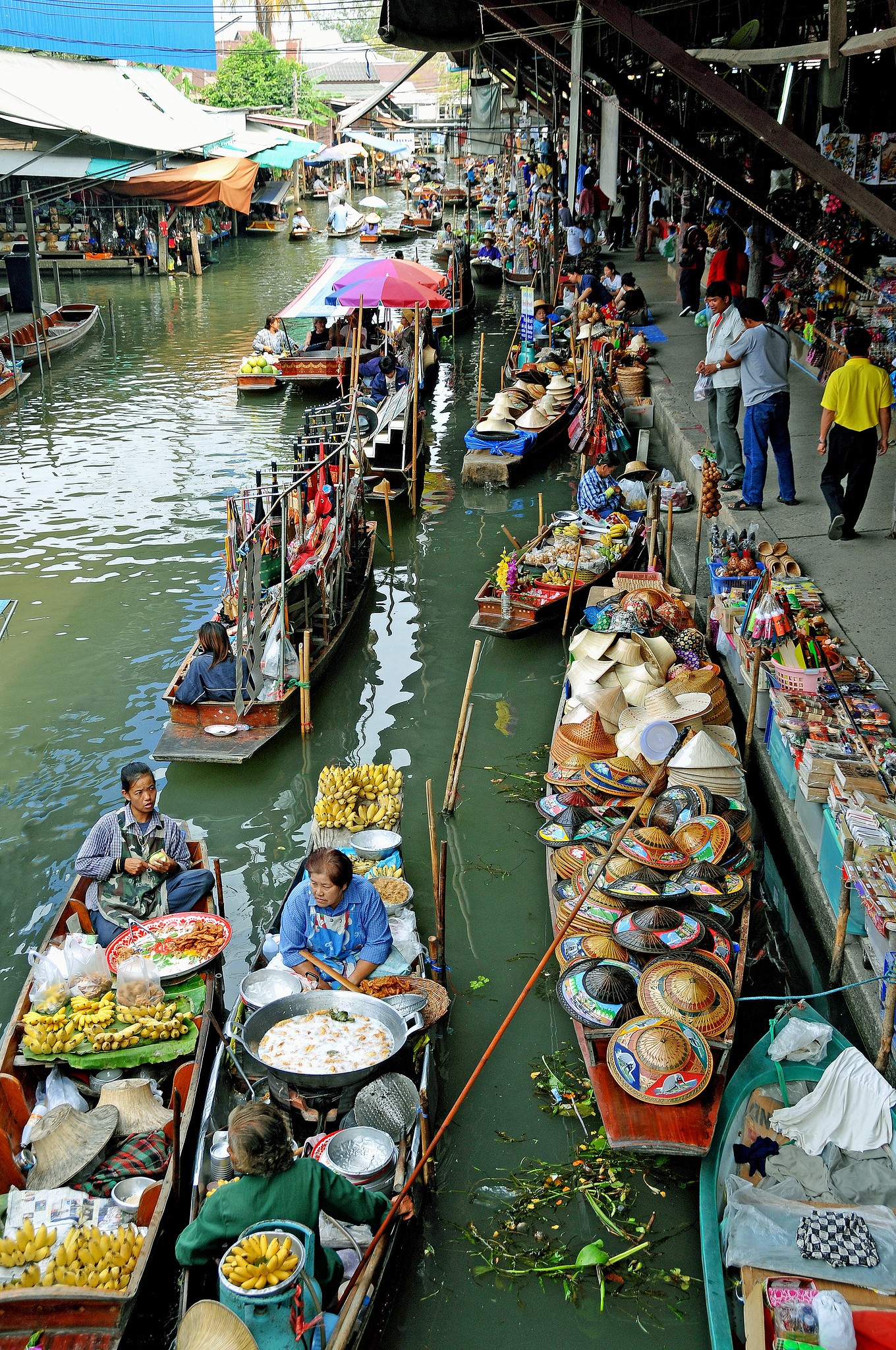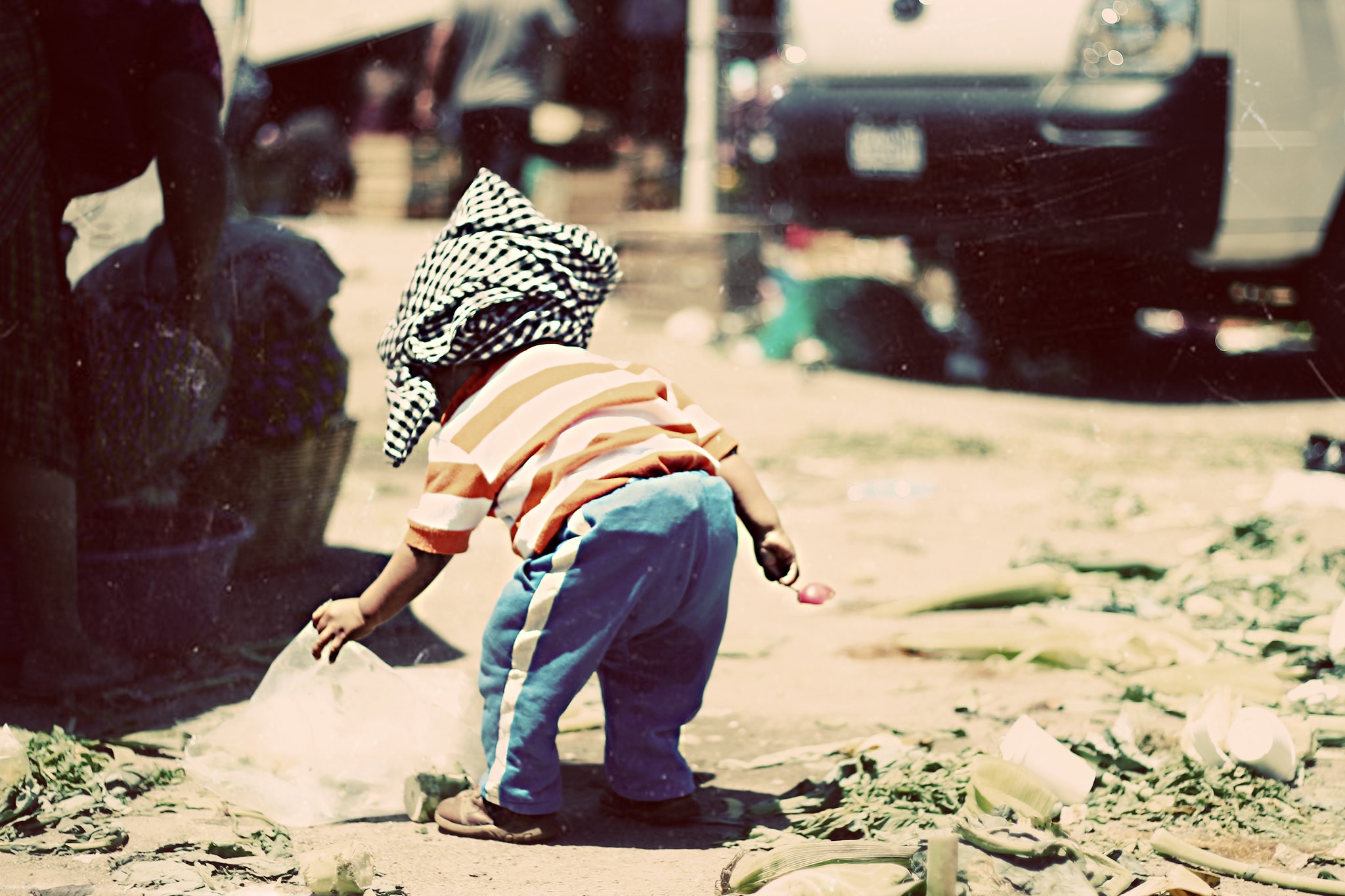Tourism stands as a vibrant example of globalization, facilitating the exchange of cultures, driving economic growth, and shaping our perception of the world. Considering visiting Vietnam? SIXT.VN offers comprehensive travel solutions, ensuring a seamless and enriching experience. Unlock incredible journeys and explore the interconnected world of travel with us.
1. What is Globalization and How Does It Relate to Tourism?
Globalization is a complex web of social processes intensifying and expanding worldwide economic, cultural, political, and technological exchanges and connections. Tourism is one of the clearest examples of globalization because it involves the movement of people, ideas, and goods across international borders. The interconnectedness of economies and societies globally has been significantly boosted by tourism.
1.1. Understanding Globalization
Globalization, in essence, is the increasing interconnectedness and interdependence of countries through flows of goods, services, capital, people, and information. This phenomenon has been centuries in the making, evolving through trade routes, migration patterns, and technological advancements.
1.2. Tourism as a Manifestation of Globalization
Tourism encapsulates many facets of globalization. It is a powerful force that drives and is driven by the globalization process. From international hotel chains to global airline networks, tourism embodies the interconnected nature of our world.
1.3. The Role of Technology
Technology has accelerated globalization, making it easier for people to travel and communicate. Booking flights, finding accommodations, and exploring new destinations are now at our fingertips through smartphones and the internet.
2. How Does Tourism Contribute to Globalization?
Tourism fosters globalization by acting as a catalyst for cultural exchange, economic integration, and the spread of ideas and values. Tourism generates global mobility and offers the simplicity of travel as well as rising awareness of new locations.
2.1. Cultural Exchange and Understanding
Tourism promotes cultural exchange by bringing people from different backgrounds together. As tourists immerse themselves in new cultures, they gain a deeper understanding and appreciation for diversity.
2.2. Economic Interdependence
Tourism significantly boosts economies by generating revenue, creating jobs, and stimulating investment in infrastructure. The industry’s economic impact extends beyond immediate gains, fostering long-term growth and stability.
2.3. The Spread of Ideas and Values
Tourism facilitates the spread of ideas and values as tourists and locals interact. This exchange can lead to new perspectives and a greater understanding of global issues.
2.4. Increased Global Mobility and Accessibility
Advances in transportation have made it easier for people to travel globally. Modern aircraft, cruise ships, and trains enable quick and relatively inexpensive movement.
2.5. Raising Awareness of New Destinations
Tourism marketing efforts raise awareness of destinations through travel shows, films, and social media. This awareness generates interest and encourages exploration of new cultures.
3. What Are the Key Aspects of Globalization That Impact Tourism?
Globalization impacts tourism through various aspects, including technological advancements, political factors, economic considerations, and socio-cultural exchanges.
3.1. Technological Advancements
The internet and mobile technology have transformed how people plan and experience travel. Online booking platforms, travel apps, and social media have made travel more accessible and convenient.
3.2. Political Factors
Political stability, government policies, and international relations impact tourism. Favorable policies can encourage tourism, while political unrest can deter visitors.
3.3. Economic Considerations
Economic factors, such as currency exchange rates, economic growth, and trade agreements, influence tourism. A strong economy can lead to increased travel, while economic downturns can reduce tourism spending.
3.4. Socio-Cultural Exchanges
Globalization fosters socio-cultural exchanges as people travel and interact with different cultures. This exchange promotes understanding and appreciation for diversity.
4. How Does Global Mobility and Ease of Travel Influence Tourism?
Global mobility and ease of travel have transformed tourism by reducing barriers and making it more accessible. Modern transportation and international banking systems have contributed to this transformation.
4.1. Advances in Transportation
Modern aircraft, cruise ships, and trains have made long-distance travel faster and more convenient. These advances have opened new routes and allowed more people to travel.
4.2. Overcoming Barriers
Ease of travel has helped overcome barriers such as fear, frustration, and expense. International banking systems allow easy access to money, while multinational corporations offer one-stop shopping for travel bookings.
4.3. Impact of Mobile Devices
Mobile devices have changed how travelers interact with destinations, making it easier to select restaurants, navigate cities, and translate languages.
 Vancouver International Airport official opening in 1931, showcasing early aviation and travel infrastructure
Vancouver International Airport official opening in 1931, showcasing early aviation and travel infrastructure
5. How Do Population and Demographic Trends Affect Tourism?
Population and demographic trends significantly affect tourism by influencing demand for specific products and services. An aging population, for example, may seek different travel experiences than younger travelers.
5.1. Global Population Growth
The world population is projected to exceed 9.7 billion by 2050. This growth presents both opportunities and challenges for the tourism industry.
5.2. Aging Population
Developed countries are experiencing a growing percentage of people over 65, reaching 25% by 2050. This trend impacts social and health services and influences travel preferences.
5.3. Urbanization
About 55% of the global population is urban, with the trend expected to continue. Urbanization affects tourism as people seek jobs, services, and activities in cities.
5.4. Migration
More people are migrating than ever before, with 272 million recent migrants in 2019. The top destinations are the United States, Germany, and the United Kingdom.
5.5. Adapting to Demographic Changes
Destinations must provide products and services that suit older, culturally diverse, and multi-generational travelers. Hiring and retaining staff require rethinking human resource policies.
6. How Do Terrorism, Safety, and Security Concerns Impact Global Tourism?
Terrorism, safety, and security concerns significantly impact tourism by deterring travelers and requiring increased security measures.
6.1. Disruptions to Tourism
Terrorist attacks and political unrest have disrupted tourism globally. The areas most affected are those where unrest has occurred and has been the focus of extensive media attention.
6.2. Global Terrorism Index
The Global Terrorism Index shows that while fatalities from terrorism have declined since 2015, the number of affected countries remains high.
6.3. COVID-19 Pandemic
The COVID-19 pandemic resulted in a massive transformation in the relationship between safety and travel. Governments closed borders and curtailed travel to contain the spread of the virus.
6.4. Importance of Safety and Security
Safety and security are critical for tourists selecting a destination. A lack of safety and security often eliminates a location from travelers’ wish lists.
6.5. Travel Advisories
Travel advisories serve as warning systems for people to avoid particular destinations due to potential threats. Government agencies issue advisories for their citizens.
6.6. Increased Security Measures
Increased security at airports aims to protect people and planes. Screening procedures have become more rigorous, and some items are no longer allowed on board.
7. How Does Increased Awareness of New Destinations Affect Tourism?
Increased awareness of new destinations significantly affects tourism by generating interest and attracting visitors.
7.1. Marketing Destinations
Generating knowledge of a destination is a key step in marketing. This is achieved through travel shows, films, social media, and other forms of communication.
7.2. Competition for Visitors
The competition to attract visitors is fierce, considering the sheer number of places available for travel. It can be easy to get lost in the noise of global competition.
8. What Role Does Poverty Play in the Globalization of Tourism?
Poverty plays a significant role in the globalization of tourism, as it affects the ability of certain populations to participate in and benefit from tourism.
8.1. Economic Growth and Poverty Reduction
Globalization has contributed to increased demand for goods and services and overall economic growth, with the result of global poverty having decreased over the years.
8.2. Unequal Distribution of Wealth
The gap between the richest and poorest has expanded. A significant portion of the world’s population is unable to participate in or benefit from tourism.
8.3. Uneven Distribution of Environmental Costs
Environmental costs are also unevenly distributed in the world. Poor countries lack the resources to adapt to impacts such as droughts and soil erosion.
 A child playing in the streets of Antigua, Guatemala, highlighting the socio-economic realities within a tourism context
A child playing in the streets of Antigua, Guatemala, highlighting the socio-economic realities within a tourism context
9. How Does Tourism Act as a Force for Peace?
Tourism can act as a force for peace by promoting understanding, respect, and collaboration between cultures.
9.1. Promoting Understanding and Respect
Tourism supports global peace by allowing travelers to learn about other cultures and meet people from other nations.
9.2. Empirical Evidence
There is little empirical evidence to support the claim that tourism fosters peace. However, there is a growing body of research on the relationship between tourism, social justice, and human security.
9.3. United Nations Sustainable Development Goals
The United Nations Sustainable Development Goals (SDGs) are important for tourism organizations to consider. They help guide the evolution of tourism toward a more positive and hopeful form.
10. How Does Tourism Influence Cultural Homogenization and Commodification?
Tourism can influence cultural homogenization and commodification by spreading Western values and placing a monetary value on cultural aspects.
10.1. Cultural Homogenization
Globalization has a homogenizing effect on cultures, as Western values are spread through music, fashion, film, and food.
10.2. Tourism as Cultural Homogenizer
Tourism offers the opportunity to teach people about how to respect other cultures. Some beliefs and values, such as embracing equality and diversity, should be shared around the world.
10.3. Cultural Commodification
Cultural commodification refers to the drive toward putting a monetary value on every aspect of culture. This trend results in the degradation or devaluing of cultural values and beliefs.
10.4. Impact on Local Economies
Tourism impacts local, regional, and global economies. Resorts dot coastlines around the world and offer a welcome respite from colder climates.
10.5. Community-Based Tourism
Community-based tourism, responsible tourism, and social entrepreneurship all aim to bring greater benefit to local communities.
 A "Patriotic Kick Line" performance on a cruise from Alaska to Vancouver, showcasing cultural expressions within tourism
A "Patriotic Kick Line" performance on a cruise from Alaska to Vancouver, showcasing cultural expressions within tourism
11. How Does Tourism Shape Our World View?
Tourism shapes our world view by influencing how we see and understand different places and cultures.
11.1. Tourism World-Making
Tourism world-making refers to the way in which a place or culture is marketed and/or presented to tourists.
11.2. Experiences of Travelers
Travelers experience a place for a few days, with limited knowledge of the culture and local way of life. Some visitors rely on available tourist information.
11.3. Authenticity of Experience
Authenticity of experience is a debated topic in tourism, discussing the extent to which experiences are staged for visitors.
11.4. Cannibal Tours
The documentary “Cannibal Tours” highlights the challenges that happen when visitors meet with “the other,” in that their expectations shape the behaviors of the locals.
 An elephant being washed at Maesa Elephant Camp in Thailand, demonstrating tourism's impact on local practices
An elephant being washed at Maesa Elephant Camp in Thailand, demonstrating tourism's impact on local practices
12. What Trends Should Tourism Professionals Consider?
Tourism professionals should consider various trends, including political, economic, social, technological, legal, and environmental factors (PESTLE).
12.1. Political Factors
Political stability, government policies, and international relations can significantly impact tourism.
12.2. Economic Factors
Economic growth, currency exchange rates, and trade agreements influence tourism spending and travel patterns.
12.3. Social Factors
Demographic trends, cultural values, and lifestyle changes shape the demand for different types of tourism experiences.
12.4. Technological Factors
Advances in technology, such as mobile devices and online platforms, transform how people plan and experience travel.
12.5. Legal Factors
Regulations, safety standards, and consumer protection laws impact tourism operations and traveler experiences.
12.6. Environmental Factors
Environmental concerns, such as climate change and sustainability, influence traveler choices and destination management practices.
13. How Can SIXT.VN Enhance Your Travel Experience in Vietnam?
SIXT.VN offers a range of services designed to enhance your travel experience in Vietnam, including airport transfers, hotel bookings, and tour packages.
13.1. Airport Transfers
SIXT.VN provides reliable and convenient airport transfer services, ensuring a smooth start and end to your trip.
13.2. Hotel Bookings
SIXT.VN offers a wide selection of hotels to suit every budget and preference, making it easy to find the perfect accommodation for your stay.
13.3. Tour Packages
SIXT.VN offers curated tour packages that showcase the best of Vietnam, allowing you to explore the country’s rich culture and natural beauty with ease.
14. What are the Benefits of Using SIXT.VN for Your Travel Needs?
Using SIXT.VN for your travel needs offers several benefits, including convenience, reliability, and personalized service.
14.1. Convenience
SIXT.VN provides a one-stop platform for all your travel needs, making it easy to plan and book your trip.
14.2. Reliability
SIXT.VN is committed to providing reliable services, ensuring that your travel plans go smoothly.
14.3. Personalized Service
SIXT.VN offers personalized service to meet your specific needs and preferences, ensuring a memorable and enjoyable travel experience.
Globalization is reshaping the tourism industry, creating new opportunities and challenges. By understanding these dynamics, tourism professionals can adapt and thrive in an ever-changing world. Ready to explore Vietnam? Contact SIXT.VN today!
Address: 260 Cau Giay, Hanoi, Vietnam
Hotline/Whatsapp: +84 986 244 358
Website: SIXT.VN
FAQ: Tourism and Globalization
1. What is the primary connection between tourism and globalization?
Tourism involves the movement of people, ideas, and goods across international borders, boosting the interconnectedness of economies and societies globally. Thus, it’s a clear example of globalization.
2. How do technological advancements impact tourism within the context of globalization?
The internet and mobile technology have transformed travel planning and experiences through online booking platforms, travel apps, and social media, making travel more accessible and convenient.
3. What role do political factors play in the globalization of tourism?
Political stability, government policies, and international relations influence tourism, with favorable policies encouraging tourism and political unrest deterring visitors.
4. How do population and demographic trends affect the tourism industry on a global scale?
Population trends like aging populations, urbanization, and migration influence the demand for specific travel products and services, requiring destinations to adapt.
5. What impact do terrorism, safety, and security concerns have on global tourism?
These concerns deter travelers and necessitate increased security measures, significantly affecting destination choices and travel experiences.
6. How does tourism contribute to cultural homogenization?
Tourism can spread Western values through music, fashion, film, and food, leading to cultural homogenization where one culture becomes indistinguishable from the next.
7. What is cultural commodification in the context of tourism and globalization?
Cultural commodification is the drive to put a monetary value on every aspect of culture, which can degrade or devalue cultural values and beliefs.
8. In what ways does tourism shape our world view?
Tourism shapes how we see and understand different places and cultures, often providing fragmented experiences that may challenge or reinforce our perceptions.
9. What are some key trends that tourism professionals should consider to thrive in a globalized industry?
Tourism professionals should consider political, economic, social, technological, legal, and environmental (PESTLE) factors to adapt to the changing dynamics of the global tourism industry.
10. How can SIXT.VN enhance your travel experience in Vietnam within the framework of globalization?
SIXT.VN offers convenient and reliable services like airport transfers, hotel bookings, and tour packages to enhance travel experiences in Vietnam, ensuring smooth and enjoyable trips.



